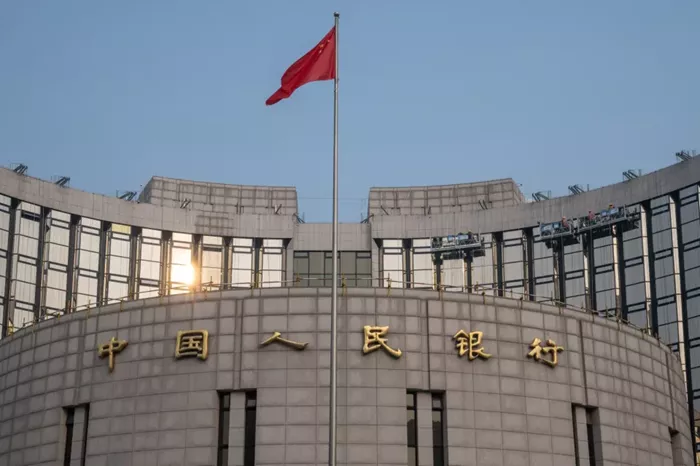China’s central bank announced on Friday that it will suspend purchases of government bonds this month, marking its latest effort to address growing investor concerns about weak economic growth that have pressured the currency and undermined confidence among businesses and consumers.
The People’s Bank of China (PBOC) stated that it would temporarily halt sovereign debt purchases due to insufficient bond supply to meet demand. The central bank indicated it would resume buying at a later date, depending on market conditions.
Benchmark bond yields have plummeted to record lows, driven by expectations of aggressive policy easing aimed at stimulating China’s sluggish economy and increasing demand for safe-haven assets. Investors have turned to bonds amidst a prolonged property crisis, weak consumption, and deflationary worries. Meanwhile, the yuan has hovered near its record low against the dollar in offshore markets.
Ken Cheung, chief Asian foreign-exchange strategist at Mizuho Bank, explained that the move reflects the authorities’ concerns over rapidly falling bond yields and rising pressure on the yuan. “The yield level already incorporates expectations of PBOC easing this year, while the yuan will remain under pressure due to a strong dollar and ongoing tariff concerns,” Cheung said.
Last year, the PBOC overhauled its policy framework and introduced government bond trading as a tool to manage liquidity, aligning more closely with practices seen in other global central banks. However, the bond rally has posed challenges for the PBOC, raising concerns about financial risks and sending a pessimistic signal about the future growth outlook.
Bond investors have grown increasingly bearish about China’s economy, with some placing bets on a potential deflationary spiral. This contrasts with the U.S. economy, where Treasury yields have been climbing amid strong economic growth, further supporting the dollar.
“The move signals the PBOC’s effort to stabilize the yuan’s exchange rate,” said Serena Zhou, an economist with Mizuho Securities Asia. The PBOC also set a daily reference rate for the yuan stronger than market expectations on Friday and announced plans to issue a record amount of bills in Hong Kong this month to absorb liquidity and support the yuan.
The suspension of bond purchases may temper speculation about aggressive monetary easing, which emerged after top Chinese leaders pledged a “moderately loose” monetary policy in December—terminology not seen in 14 years. Bank of America had previously projected that the PBOC would buy a net 3 trillion yuan ($409 billion) in government bonds this year as part of supplementary policy measures.
Despite these signals, China’s money markets had already shown signs of traders betting that authorities would delay easing measures to stabilize the currency. Following the announcement, China’s government bond yields rose across the curve, with the five-year rate climbing eight basis points and the 10-year rate gaining four basis points to 1.675%. The offshore yuan saw a slight 0.1% uptick.
The PBOC had purchased a net 1 trillion yuan of sovereign bonds for five consecutive months through December, after initiating regular bond transactions with primary dealers in August. Earlier this week, the benchmark 10-year yield had hit a record low of 1.60%.
Lynn Song, chief greater China economist at ING Bank, suggested that the move was a short-term reaction to current market conditions rather than a significant policy shift. He still expects an interest rate cut or other easing measures in the first quarter of this year. “With recent bond market demand being relatively strong, there isn’t an immediate need for more PBOC purchases,” Song said. “This announcement could lead to a modest rise in yields in the near term and provide some support for the yuan.”
Related topics:
Asian Stocks Rebound as Wall Street Stumbles
Oil Prices Rally Amid Stimulus Hopes and Global Economic Uncertainty


